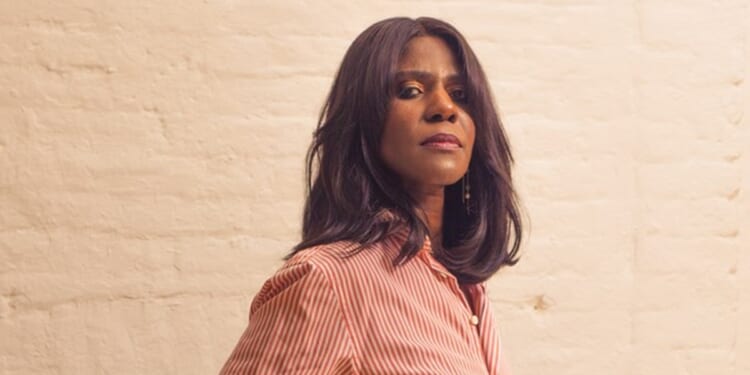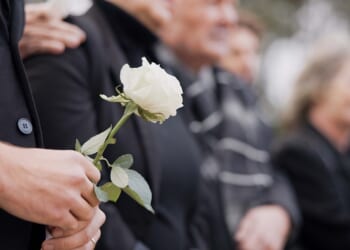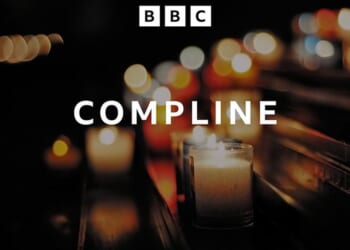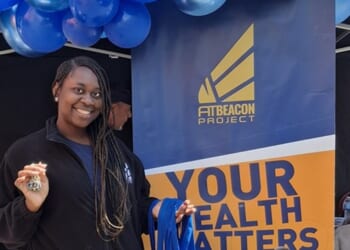A BLACK British designer has spoken about the part that her faith played in taking her from homelessness to being shortlisted for this year’s Lloyds British Business Excellence Awards.
Jasmine King, the founder of Kin and Cloth, a children’s sustainable clothing brand, has been nominated in two categories for the awards, due to be announced on 11 November: purpose before profit, and sustainability.
“This is God moving mightily,” she said last week. “It’s from homelessness to Downing Street to the British Excellence Awards. That’s me keeping my eyes on him, being obedient, and holding on to hope.”
Born into a family of 18 children, Ms King grew up in the Erdington and Aston areas of Birmingham in a household of eight children. As a child, she attended Ebenezer Methodist Church, which was “culturally diverse”, with outreach to local children.
Having begun to learn her craft from her mother, a seamstress, she and her older sister, Miriam, studied tailoring at the “amazing” Handsworth Technical College, established in the late 19th century to provide specialist commercial and technical education. Ms King, who recalls learning from “the Midlands’ finest”, has drawings from students in the 1920s cohorts displayed on her walls at home.
She took an art foundation course and a BTech before completing a degree in fashion studies at Derby University. Last week, she recalled the challenges around this period, during which her father, brother, and nephew died. Miriam died, aged 25, after a late diagnosis of cancer.
Ms King worked for several fashion brands, where she was the only black member of staff in the design team. Renting privately in Camden in 2012, she was asked to vacate her flat after her landlord died and a relative took over. Her wages weren’t enough to save for a deposit, and the council informed her that, without dependants, she was not a priority for housing. “I didn’t know that the system makes you homeless before they step into help.”
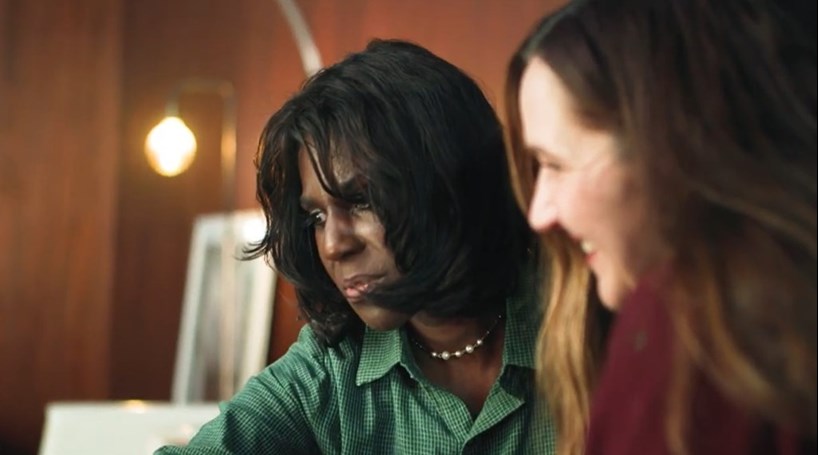 LLOYDS/KIN AND CLOTHJasmine with her Lloyds mentor, Jude Williams
LLOYDS/KIN AND CLOTHJasmine with her Lloyds mentor, Jude Williams
Having packed two large vans with her possessions, she learned only the night before she had to move that she would be allocated a place in a hostel — but it was accommodation that the Sickle Cell Society had told the Council would be inappropriate for a carrier. Ms King learned a child that she has a rare form of the sickle-cell gene. It was having this condition that prevented her being made street homeless. “My greatest weakness was my blessing,” she said.
During her time living in one room in the hostel, she was “steadfast in prayer and in contacting the council”. On one occasion, a fellow resident made death threats. At Christmas time, she was diagnosed with pneumonia — vindicating the Society’s concerns about the accommodation. She returned to the hostel to find a letter offering her a viewing of a new flat in King’s Cross: an answer to prayer. On moving in, she thought: “Anything and everything is possible now. He has shown me his mightiness and the power of prayer”.
Even when the health challenges continued and when Ms King was admitted at a later date in hospital, the message from prayer, she said, was “Wait, be still” and then a further message was “go and hope”. She “updated my designs adding GO and HOPE, and they have been one of my biggest sellers.”
The Archdeacon asked her to help the diocese to build community in the new area. Her response was: “I can only lend the skills of my hands.” So, she worked with the diocese to bring a new community together.
Having set up Kin and Cloth, a children’s clothing label, with a vision to offer an alternative to “fast, throwaway fashion” for children, she started to trade at the Canopy Market in the area. She also began running after-school workshops at a local primary school to help to build a greater community in the rapidly expanding housing development, and discovered “a hunger for creative learning”.
She continues to run workshops, and, having secured funding from a venture-capital firm and Camden Future Funding, she has expanded the programme for the wider community. She described the “strong foundation” set at her church and through her parents’ example as guiding her work, “knowing that I have the responsibility to get the best out of every child”. She says that stewarding the gifts “as it passes through my hands to the next generation is a privilege”.
“From trading at the market, so many conversations and opportunities and connections have happened,” she said — including opportunities to pray with people. Many who have visited Kin and Cloth Pop ups champion the designs and workshops being delivered.
Last year, she became the first person to be matched with a mentor through the Lloyds and Crisis UK mentoring programme. She had first contacted Crisis while living in the hostel and secured a Changing Life Grant to buy a camera. During Black History Month last year she was invited to 10 Downing Street.
Having received a series of awards, including Gold in the City Kids magazine’s Green Awards for Best Fashion Brand — Visionary, Ms King also took part in the first Good Clothes Show for “high-end sustainable clothes”. Among her firm’s commitments are using only unwanted cashmere that could end up in landfills and creating designs with good cut, colour, and fabric. The awards are recognition of the hard work it takes to found and run a small business, to “build something and lead”, she said.
Among the Kin and Cloth collection are bags displaying the words “Go” and “Hope” — instructions she believes she received from God during some of the toughest moments of her life, and these are the styles over which customers stop to have a conversation.
Ms King says: “Some may not always value the gifts that we are given to steward. I am thankful that God has been making a way and speaking on my behalf through it all.”

